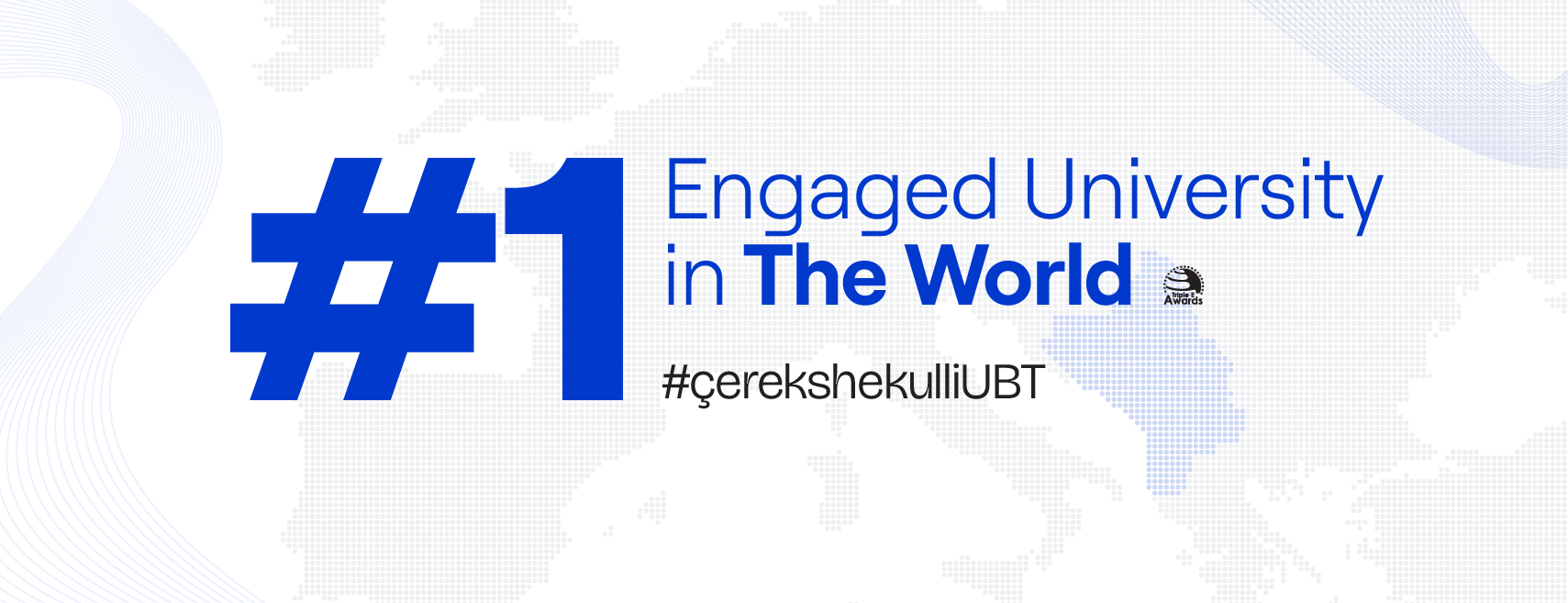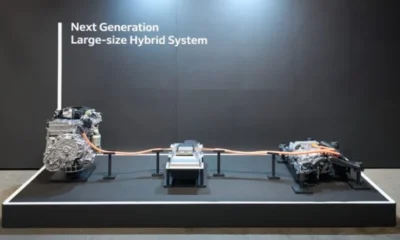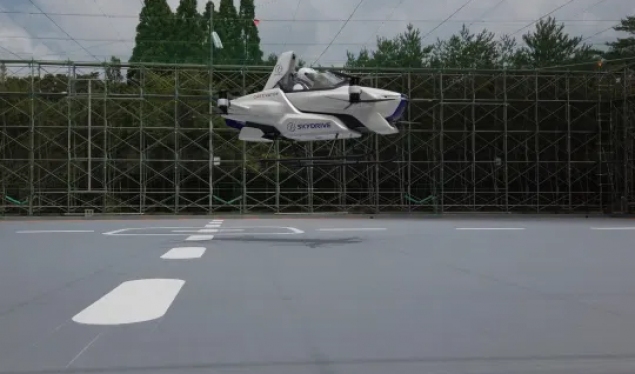
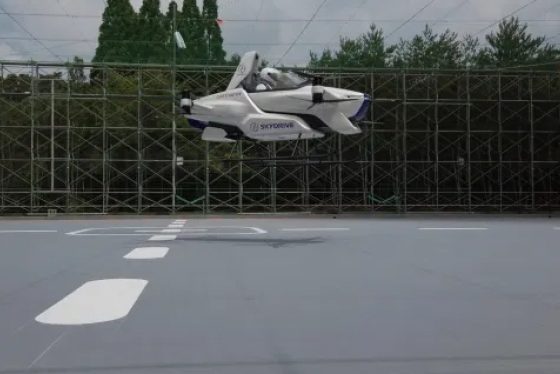
Teknologji
Japonia ngre e para makinën fluturuese me një person në bord
Published
6 years agoon
By
Esad DujakaNjë makinë fluturuese është ngritur me sukses dje në Japoni, duke i hapur rrugë nisjes zyrtare të projektit në 2023.
Kompania SkyDrive, një nga disa projekte të makinave fluturuese për të cilat po punohet në botë, kreu testin e modelit të saj me disa helika që qëndroi në ajër për katër minuta.
Drejtuesi Tomohiro Fukuzawa tha se shpreson që mjeti ajror të kthehet së shpejti në një produkt të jetës reale brenda tre vjetëve dhe pranoi se çështja kryesore është ai të bëhet i sigurtë për jetën.
“Nga më shumë se 100 projekteve të makinave fluturuese në botë, vetëm disa kanë arritur sukses me persona në bord. Shpresoj që shumë njerëz ta drejtojnë atë dhe të ndjehen të sigurtë”, tha ai.
Makina mund të fluturojë për 10 minuta dhe shpresohet që së shpejti të kthehet në 30, çka do t’i jepte mjetit potencial më të madh, të cilin prodhuesit shpresojnë ta eksportojnë në Kinë.
Ndryshe nga avionët e helikopterët mjetet e këtij lloji ofrojnë udhëtim të shpejtë personal, me qëllim evitimin e zhurmës e zgjatjes së aeroporteve apo dhe të marrjes së pilotëve profesionistë.
“Shumë gjëra mund të ndodhin”, thotë Sanjiv Singh, profesor në Institutin e robotikës të universitetit Carnegie Mellon i cili po punon gjithashtu në një model të tillë. “Nëse ato kushtojnë 10 milionë dollarë askush nuk do t’i blejë, dhe as kur ato mund të fluturojnë për vetëm pesë minuta apo nuk ka siguri”, shton ai.
Qeveria japoneze ka besim se makinat fluturuese do të përdoren për biznes në vitin 2023 dhe në mënyrë komerciale deri në vitin 2030, duke theksuar nevojën e tyre për lidhje me rajonet e largëta në dhënien e ndihmës në raste katastrofash./TCh/
Teknologji
OpenAI ndalon përdorimin e AI-së për mbikëqyrje ndaj amerikanëve pas reagimeve publike
Published
3 hours agoon
March 4, 2026By
UBTNews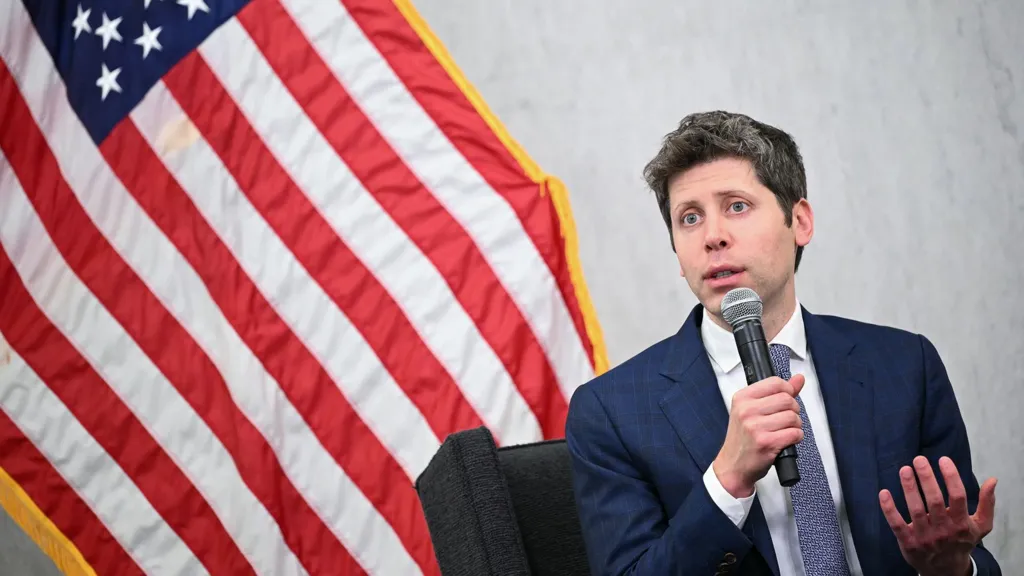
OpenAI ka njoftuar ndryshime në marrëveshjen që kishte lidhur me qeverinë amerikane për përdorimin e teknologjisë së saj në operacione të klasifikuara ushtarake, pas reagimeve të ashpra nga përdoruesit dhe publikimi i marrëveshjes fillestare.
Shefi ekzekutiv i OpenAI, Sam Altman, tha se marrëveshja do të përfshijë gjuhë që ndalon shprehimisht përdorimin e sistemeve të kompanisë për mbikëqyrje të brendshme ndaj shtetasve amerikanë. Ndryshimet gjithashtu parashikojnë që agjencitë e inteligjencës, si NSA, nuk do të mund të përdorin sistemet e OpenAI pa modifikime të mëtejshme të kontratës.
Marrëveshja fillestare kishte nxitur debate pasi rivalja e OpenAI, Anthropic, u përplas me Departamentin e Mbrojtjes për përdorimin e modelit të saj Claude për mbikëqyrje masive dhe armë autonome. OpenAI pranoi se nxituan me njoftimin e së premtes, duke e cilësuar atë “opportunist dhe të nxituar”.
Reagimet e përdoruesve ishin të menjëhershme: sipas Sensor Tower, numri i çinstalimeve të ChatGPT u rrit 200% nga norma e zakonshme që nga momenti i njoftimit. Ndërkohë, modeli Claude i Anthropics u radhit në vendin e parë në App Store të Apple.
AI përdoret nga ushtria për të thjeshtuar logjistikën dhe përpunuar shpejt informacion të madh. Shtetet si SHBA, Ukraina dhe NATO përdorin teknologji të Palantir për inteligjencë, mbikëqyrje dhe operacione ushtarake, ndërsa ekspertët theksojnë rëndësinë e mbikëqyrjes njerëzore mbi vendimet e AI-së.
Profesoresha Mariarosaria Taddeo nga Universiteti i Oksfordit paralajmëroi se largimi i Anthropics nga Pentagoni do të lërë një “mungesë të aktorit më të kujdesshëm për sigurinë” në përdorimin e AI-së për qëllime ushtarake, duke e konsideruar këtë një problem serioz.
Ky lajm tregon tensionin dhe sfidat që lidhen me përdorimin e inteligjencës artificiale në operacionet ushtarake dhe kontrollin e saj nga qeveritë dhe kompanitë private. /BBC/
Teknologji
Google paralajmëron përdoruesit e WhatsApp për këtë funksion
Published
3 weeks agoon
February 10, 2026By
UBTNEWS
Së fundmi u zbulua një dobësi serioze e sigurisë në WhatsApp. Qendër e problemit ishte një funksion që shumë përdorues e kishin aktivizuar pa e ditur.
Ne shpjegojmë pse shkarkimet automatike janë të rrezikshme dhe si mund të mbroheni tani. Sulmi përmes grupeve të WhatsApp.
Sipas shërbimit të sigurisë IT Malwarebytes dhe zbulimeve të Project Zero të Google, sulmuesit shtuan viktimat e tyre pa paralajmërim në grupe WhatsApp dhe dërguan aty skedarë të manipuluar.
Meqë WhatsApp shkarkon mediat automatikisht si parazgjedhje, këta skedarë u ruajtën menjëherë në telefonat e viktimave. Veçanërisht të prekur ishin pajisjet Android, raporton gazeta gjermane Bild
Problem i madh: Nuk shfaqej asnjë pyetje sigurie ose paralajmërim. Kështu, malware ishte tashmë në telefon, pa pëlqimin aktiv të përdoruesit. Gjithçka që nevojitej nga sulmuesit ishte numri i telefonit i viktimës.
Skedari duhej të hapej për të shkaktuar dëmin, por sipas ekspertëve, sulmuesit përdorën edhe truke psikologjike – si thirrje ose mesazhe që të bindnin përdoruesin ta hapte skedarin.
Update-i nuk mjafton gjithmonë Kompania Meta publikoi një përditësim për të mbyllur dobësinë. Google e vlerësoi fillimisht këtë patch si të paplotë. Tani ekziston një fix i plotë.
Megjithatë, ekspertët këshillojnë që të mos mbështeteni vetëm te përditësimet, por të merrni vetë masa mbrojtëse. Këto masa duhet të merrni tani: Çaktivizoni shkarkimet automatike Hapni WhatsApp Shkoni te “Cilësimet” Zgjidhni “Ruajtja dhe të dhënat” Tek “Shkarkimi automatik i mediave” hiqni të gjitha shenjat tek të gjitha llojet e skedarëve Në iOS: tek të gjitha mediat vendosni “Kurrë” Shënim: Fotot dhe videot nuk do ruhen më automatikisht edhe në biseda individuale.
Parandaloni ruajtjen në galeri Hapni cilësimet e WhatsApp Shkoni te “Bisedat” Çaktivizoni “Shfaqjen e mediave” Në iOS: çaktivizoni “Ruaj në Foto” Shënim: Mediat do të shkarkohen ende, por nuk do ruhen ose shpërndahen automatikisht. Kufizoni ftesat për grupe Në cilësime shkoni te “Privatësia” Zgjidhni “Grupet” Në vend të “Të gjithë”, vendosni “Kontakte të mia” ose “Kontakte të mia përveç …” Përjashtoni kontaktet e panjohura ose të dyshimta /Bild/
Teknologji
TikTok nënshkruan marrëveshje për ndarjen e aseteve në ShBA
Published
3 months agoon
December 19, 2025By
UBTnews
TikTok ka nënshkruar një marrëveshje të mbështetur nga Presidenti Donald Trump për të ndarë asetet e saj në Shtetet e Bashkuara të Amerikës dhe për të krijuar një entitet të ri të përbashkët, të kontrolluar kryesisht nga investitorë amerikanë.
Lajmi u konfirmua nga CEO i TikTok, Shou Chew, në një memo drejtuar punonjësve të enjten, e siguruar nga CNN. Edhe pse transaksioni nuk është finalizuar ende, marrëveshja e çon platformën një hap më afër sigurimit të së ardhmes së saj afatgjatë në tregun amerikan.

Ky zhvillim vjen pas një ligji të miratuar vitin e kaluar, i cili kërkonte që TikTok në ShBA të shkëputej nga kompania mëmë kineze ByteDance, ose përndryshe të përballej me ndalim. Presidenti Trump e ka shtyrë zbatimin e ligjit disa herë, duke favorizuar një marrëveshje që do ta kalonte kontrollin e aplikacionit në duar amerikane.
“Sapo kemi nënshkruar marrëveshje me investitorët për krijimin e një sipërmarrjeje të re të përbashkët TikTok në ShBA, duke u mundësuar mbi 170 milionë amerikanëve të vazhdojnë të zbulojnë një botë me mundësi të pafundme,” shkroi Chew në memo.
Sipas marrëveshjes, 50% e entitetit të ri do të jetë në pronësi të një konsorciumi investitorësh që përfshin Oracle, Silver Lake dhe MGX, një firmë investimesh e mbështetur nga Emiratet e Bashkuara Arabe. Rreth 30% do të zotërohet nga bashkëpunëtorë të investitorëve ekzistues të ByteDance, ndërsa 19.9% do të mbetet në pronësi të vetë ByteDance.
Chew theksoi se ka ende hapa për t’u përfunduar, por palët synojnë finalizimin e marrëveshjes deri më 22 janar 2026. ByteDance dhe TikTok tashmë kanë rënë dakord për kushtet kryesore të transaksionit.
Administrata Trump njoftoi në shtator se kishte arritur një marrëveshje paraprake për transferimin e kontrollit të operacioneve amerikane të TikTok te investitorë kryesisht amerikanë. Presidenti nënshkroi një urdhër ekzekutiv që e cilëson marrëveshjen si një “shitje të kualifikuar” dhe shtyu zbatimin e ndalimit për 120 ditë.
Sipas ligjit amerikan, i cili teknikisht hyri në fuqi në janar, TikTok do të ndalohej nëse ByteDance nuk shiste rreth 80% të aseteve të saj në ShBA investitorëve jo-kinezë.
Entiteti i ri amerikan do të ritrajojë algoritmin e TikTok mbi të dhënat e përdoruesve amerikanë, ndërsa Oracle do të mbikëqyrë ruajtjen e të dhënave dhe sigurinë kibernetike. Gjithashtu, ndërmarrja e re do të jetë përgjegjëse për moderimin e përmbajtjes për përdoruesit në ShBA. Megjithatë, ByteDance pritet të vazhdojë të menaxhojë tregtinë elektronike, reklamimin dhe marketingun global të platformës.
Marrëveshja do të kërkojë gjithashtu miratimin e qeverisë kineze, i cili ende nuk është konfirmuar zyrtarisht. Ndërsa Trump ka deklaruar se Presidenti kinez Xi Jinping është dakord me marrëveshjen, Pekini ka mbajtur një qëndrim të rezervuar, duke theksuar se pozicioni i Kinës për çështjen e TikTok mbetet “i qartë dhe konsistent”./CNN/UBTnews
Teknologji
OpenAI ka prezantuar një gjenerator të ri imazhesh
Published
3 months agoon
December 17, 2025By
UBT News
Kompanitë e teknologjisë po avancojnë me shpejtësi në fushën e inteligjencës artificiale, dhe OpenAI sapo ka prezantuar një gjenerator të ri imazhesh të quajtur ChatGPT Images.
Ky zhvillim shënon një hap të rëndësishëm drejt krijimit të imazheve me anë të inteligjencës artificiale, duke u mundësuar përdoruesve të shprehin kreativitetin e tyre në mënyra të reja dhe më të avancuara.
Sipas deklaratave, ky gjenerator është katër herë më i shpejtë se versionet e mëparshme, ndjek udhëzimet që përdoruesit japin dhe bën më pak gabime në detaje.
Ky përmirësim teknik e bën procesin e krijimit të imazheve më të saktë, më efikas dhe më të kënaqshëm për përdoruesit, duke lehtësuar punën kreative dhe duke reduktuar nevojën për redaktime të mëvonshme.
Sam Altman, CEO i OpenAI, kishte paralajmëruar prezantimin e këtij modeli më parë dhe e përshkroi atë si një “model argëtues”, duke lënë të kuptohet se përdoruesit mund të presin një përvojë interaktive dhe kreative.
Krijimi i imazheve me cilësi të lartë bëhet i thjeshtë: mjafton të japësh komandat e duhura, dhe inteligjenca artificiale punon për të gjeneruar rezultatin në mënyrë të shpejtë dhe të saktë. ChatGPT Images synon të thjeshtojë procesin e krijimit të imazheve e të ofrojë një eksperiencë më të shpejtë, më të saktë dhe më argëtuese për përdoruesit.
Përveç përdorimit personal, ky mjet ka ndikim edhe në fusha të ndryshme profesionale, si dizajni grafik, marketingu, arsimi dhe krijimi i përmbajtjes digjitale, duke e bërë AI një partner të dobishëm për inovacion dhe krijimtari. /A.Z/UBT News/

FFK miratohet nga UEFA për dhënien e licencës Fitness B për trajnerët

Kori dhe Orkestra e Operës së Kosovës nderojnë Epopesë e UÇK-së me koncert solemn

Sveçla i përgjigjet ashpër Vulin-it: Deklaratat e tij janë kërcënim i hapur ndaj Kryeministrit Kurti

Kosova përballet me Portugalinë në UEFA Femra U17

OpenAI ndalon përdorimin e AI-së për mbikëqyrje ndaj amerikanëve pas reagimeve publike

Vazhdon dëshmia e ekspertit të kriminalistikës në gjykimin e Thaçit dhe të tjerëve në Hagë

IRGC: Irani ka ‘kontroll të plotë’ mbi Ngushticën e Hormuzit mes kërcënimeve të Trump-it

Sot pritet të thirret seanca për presidentin, oraret e mundshme

Kuptimi shkatërrues i pikturës“Takimi në Shkallët e Kullës”
Të kërkuara
-
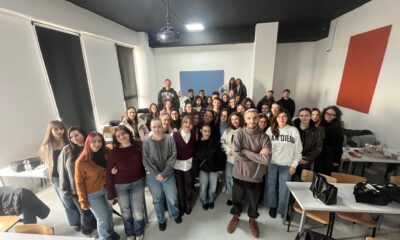
 Vendi3 months ago
Vendi3 months agoDizajneri grafik Berin Hasi ligjëron për studentët e Dizajnit të Integruar në UBT
-
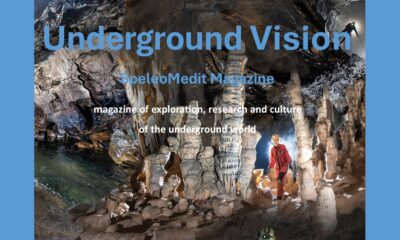
 Lajmet3 months ago
Lajmet3 months agoProfesori i UBT-së, Hazir S. Çadraku dhe bashkëpunëtorët publikojnë artikullin “Historia e Mbrojtjes së Shpellës në Kosovë” në SpeleoMedit Magazine
-
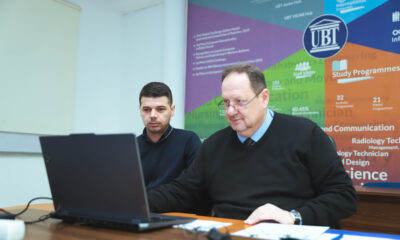
 Lajmet2 months ago
Lajmet2 months agoProfesorët e UBT-së publikojnë studim shkencor në revistën prestigjioze ndërkombëtare të indeksuar në Scopus (Q1)
-

 Kulturë3 months ago
Kulturë3 months agoIvanka Trump zbulon librat për historinë shqiptare: Çfarë e tërheq?
